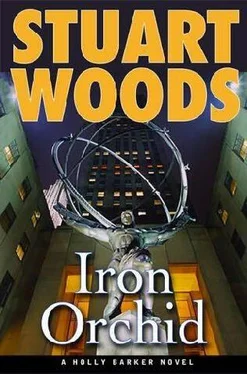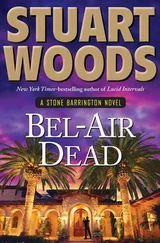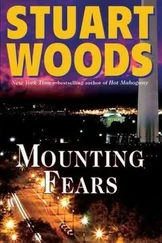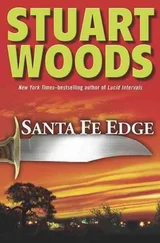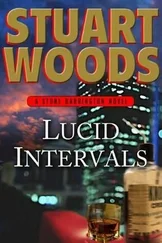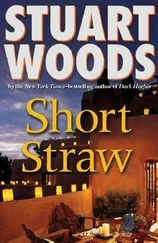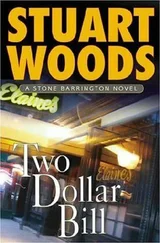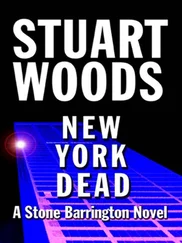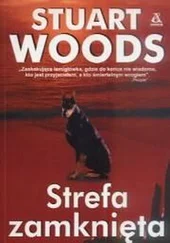“In this series of photographs, you see what is apparently a uniformed messenger walk down the street carrying a parcel. He rings the bell, a guard comes to the door, signs for the package, and the messenger walks away.” He cut to a series of closeups of the messenger. “He appears to be a middle-aged man of medium height and weight. As you can see, the bill of his baseball cap prevents us from getting a clear shot of his face. It’s almost as if he knows he is being photographed. He disappears around the corner and is gone. Fifty minutes later, the house goes up.” He switched to a photograph of the house collapsing on itself.
“It would seem that the explosion was larger than one that would have resulted from a bomb in a parcel the size of the one delivered. We speculate that a bomb in the package set off other explosive material already in the house, causing it to collapse.” He switched on the TV again. “Here is a statement made by the Iranian ambassador to the U.N. a few minutes ago, from the steps of their embassy.”
The ambassador read from a single sheet of paper in his hand. “The house in the block behind our embassy was used to house embassy employees,” he said. “We believe that the CIA is responsible for this act of terrorism, in which a number of embassy employees died.”
Lance switched off the TV. “Let me assure you that we were not responsible for the explosion. Either the messenger delivered a bomb or someone inside, while building a bomb, accidentally caused an explosion. We do not routinely commit such actions on our own soil, and the DDO and the DDI are annoyed that we are being accused of doing so.
“All of you are being trained to join a new counterintelligence team that is being assembled in New York to prevent such acts in the city or, if they occur, to work with the FBI to learn the identities of the perpetrators. The attack today has caused the Deputy Director for Operations to believe that it is more important for your subgroup to be moved to New York immediately than to complete the last weeks of your training. Accordingly, your training has been terminated, and arrangements have been made for you to join the team.
“Tomorrow morning you will be issued with your credentials and reassigned to New York with immediate effect. Two of you have cars and will drive there; the other three will ride with you. You’ll be told tomorrow morning where to report. I’m not going to take questions now, because I don’t have any answers for you, so return to your quarters, get packed, get a good night’s sleep and report here tomorrow morning at seven a.m. That’s all, good night.” Lance left the room, and the group broke up.
Holly walked back to her room in a state of excitement.
SHORTLY AFTER DAWN the following morning, Lance Cabot stood on a New York City rooftop with Hugh English, the deputy director for operations, and Robert Kinney, the brand new director of the FBI. They were looking down at all that was left of a townhouse. Lance had choppered up from Langley with the Deputy Director of Intelligence in the middle of the night, and he missed the sleep. He must be getting old, he thought.
The DDIO and the director were grim-faced, and Lance wasn’t sure if it was because of what they knew or what they didn’t know.
A young agent stepped up to Kinney and whispered something in his ear.
“Excuse me a minute, Hugh, Lance,” Kinney said and walked a few steps away with the agent. Lance could see his face as the agent delivered his news, and Kinney looked both astonished and outraged. “That’s impossible,” Lance heard him say. “I never did that.” Kinney came back to English and Lance. “This is Special Agent Kerry Smith,” he said, and introduced the two men. “He’s brought me some news, and it puts this incident in a whole new light.”
“What is it, Bob?” English asked.
“It looks as though the explosive used here was C-4, and that it came from the evidence room in our New York field station downtown.”
“How can that be possible?” English asked. “Do you suspect one of your own people?”
Kinney shook his head. “Here’s how it went: a man in a suit walked into the evidence room, presented credentials that identified him as an FBI agent and presented a letter, ostensibly signed by me and endorsed by the AIC, authorizing him to remove four pounds of C-4 from the evidence room to transport to D.C. as evidence in a trial. The man’s I.D. said his name was Curry. There is no agent by that name, but by God, the name was in the database that confirmed his I.D.”
“How could an outsider get hold of a verifiable I.D. card for an agent who doesn’t exist?” Lance asked.
“Hugh,” Kinney said, “has Kate spoken with you about the Teddy Fay problem?”
“Oh, God,” English said, nodding.
Lance was baffled. “Teddy Fay is dead, isn’t he?”
“Not anymore,” Kinney replied.
HOLLY AND HER FOUR TEAM MEMBERS were in the conference room on time. A man they didn’t know came in and put a cardboard box on the table.
“Good morning,” he said. “Mr. Cabot couldn’t be with you this morning; he’s in New York with the DDL.” He reached into the box and removed five heavy brown envelopes and distributed them among the group, calling each by name. It was the first time Holly had heard any of their names.
“First, please pass me the I.D. cards you were issued when you arrived at the Farm.”
The group turned in their I.D.'s.
“Now open your envelopes,” the man said. “Inside you’ll find a leather wallet with your permanent I.D. card, which bears your photograph, your right index fingerprint and your signature. It also contains, on a magnetic strip, much other information from your service record, including a copy of your DNA profile. The card identifies you as an officer of the CIA and explicitly authorizes you to carry concealed weapons, not just firearms, in the fifty states and the territories of the United States. Should you be sent abroad on duty, you’ll be provided with other weapons authorizations.
“Also in the envelope is a copy of your commission, and you will return that to me to be placed in your service record. Also in the envelope is a box of five hundred business cards. Generally speaking, you are not to identify yourself as a CIA officer unless circumstances demand it, but if you must, you’ll have these two means of identification. The phone number on your business card is a Washington number, but any calls you receive will be routed to an electronic mailbox or to your local number, upon your instructions.
“Also in the envelope is a card with a New York City address and a street map showing its location. You will present yourselves at that address by three p.m. today. Your car, if you own one, will be garaged in the basement of the building, and you will be temporarily housed there until other arrangements are made. Memorize the address and phone number and the directions, then return the card and map to me.
“Sally Liu,” he said to Harry Three, “you will ride with Holly Barker and her dog in her car. William Knox, you will take Harvey Kite and Jennifer Fox in your car.
“We’re done here, so now you are to go to the armory, where you will be issued appropriate weapons. Within certain limits, you’ll be allowed to choose them. Thank you, good luck and goodbye. Make us proud of you.” The man gathered up the envelopes and left the room.
“Sally Liu,” Holly said, “I’m Holly Barker.” She introduced herself to the other three and memorized their names.
“What kind of piece are you going to ask for?” Sally asked as they left the main house and walked toward the armory.
“I don’t know, really; I brought a handgun with me.”
Читать дальше
